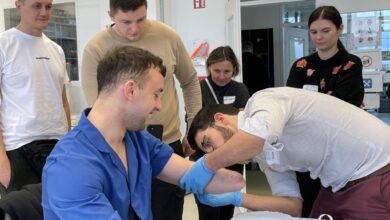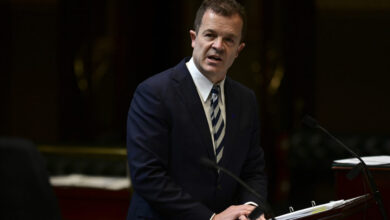By Stacy M. Brown, NNPA Newswire Senior Correspondent
@StacyBrownMedia
When National Newspaper Publishers Association (NNPA) President and CEO Dr. Benjamin F. Chavis, Jr. appeared on the Kelly Wright Show two weeks ago, Chavis told Wright that the novel coronavirus would hit African Americans the hardest.
“Tragically, the warnings have all proven to be true,” Wright stated today.
“The public health data reveals that COVID-19 is having a devastating impact on African Americans in Chicago, Milwaukee, New Orleans, and other major cities.”
But nowhere else has the African American community felt the wrath of the coronavirus like St. Louis, where nearly every person that has died from the virus is Black.
The first non-African American to die was a Latino woman in her 50s. She died on Friday, April 10.
A white male in his 90s also died on Friday, April 10.
But, in a city where just 24 percent of the population is Black, a whopping 55 percent of the confirmed cases are African American.
White account for 68.2 percent of St. Louis’ population, and 36.6 percent of coronavirus cases.
Meanwhile, the death toll continues to mount in the Black community.
In a major and exclusive interview scheduled to air on Monday, April 13, Wright will discuss the grim breaking news with St. Louis Urban League President Michael McMillan.
In a transcript of the interview obtained by NNPA Newswire, McMillan revealed the devastating facts.
“In St. Louis, if you look at the number of zip codes that have the highest number of cases, they are in the African American community. So, this disease is impacting us and even in a more significant way,” McMillan tells Wright during the riveting discussion.
He stated that some of the Urban League’s partners and top African American commanders in the history of the Police Department have died.
“Pastors we work with who is on the front lines in terms of mediating the disputes between gang members to keep them from killing each other have died. And the first person to die in the region was a health care worker, an African American nurse,” McMillan says.
The devastating losses suffered within St. Louis’ African American community are compounded by the well-documented health disparities that already exist for many Black Americans nationwide, according to the Urban League.
Public Health data in virtually every major urban area has documented the overwhelming cases of Blacks experiencing diabetes, heart disease, high blood pressure, and more chronic illness that weaken their immune systems.
All of which make them susceptible and vulnerable to the Coronavirus, McMillan noted.
Beyond the health problems of the community, McMillan also acknowledged the economic and employment issues that plague the community.
“So, as you look at this devastation, the other thing, of course, is that so many African Americans have jobs that they cannot work from home at,” he told Wright.
“So, since we have positions that put us on the front lines so often, they are not executive positions that one can do from home. So, individuals are really out there and risking their lives in order to take care of themselves and their families are even more at risk, which contributes to an increase in numbers of African Americans here in St. Louis and across the country.”
When asked what the Urban League is doing to mitigate the risk amid the virus already making a full assault on the African American community, McMillan responded:
“When you look at the unemployment numbers, unfortunately, African American men ages 18-24 have been the highest percentage in general before the crisis. Now that 16 million-plus people have filed for unemployment in the past three weeks, our community has been devastated by that, so we have seen a huge need in terms of basic necessities for individuals just to survive. Food, housing, utility assistance, toiletries, diapers, formulas, things that people need to make it every single day.”
He adds:
“Then there’s the fear of infecting themselves and their families by being out for those that do still have jobs and do have to go and take care of other people. So, we’ve been able to provide over 2,500 sets of food, and we’ve been giving away these large distributions now.”
The Urban League also just completed its second food and supplies distribution for those living in urban areas. The League served more 1,500 residents and has helped more than 1,000 receive food and other necessities like hand sanitizers.
“We’re trying to do it on a multi-faceted level. Obviously, we are doing it while focusing on the Centers for Disease Control and Prevention’s guidelines about the distancing, wearing the gloves and the masks when we’re out there,” McMillan stated.
He says the Urban League chapter in St. Louis is the largest in the United States. “The Urban League was created to serve African Americans and those that are in need in major urban areas across this country,” McMillan told Wright.
“We must provide resources for those that need it most. The need is overwhelming. When you look at this tragedy and all the illnesses it has created, it has been devastating. And it’s going to be that way for some time. But by coming together as Americans and showing the best side of ourselves. I believe we will be able to help provide all of the hope and opportunity to get through this together.”





